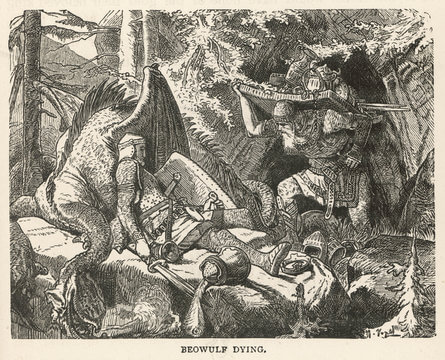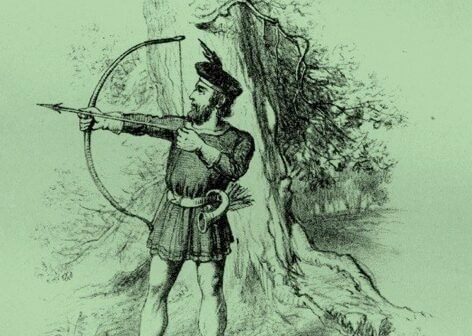Legends are timeless tales. They have been woven into every culture since the dawn of time, and have this incredible way of captivating our collective imagination. They’re like windows into the past, giving us glimpses into what our ancestors believed, feared, hoped for, and dreamed about.
What is a Legend in Storytelling?
First, let’s define legend
Legends, in their essence, are narratives that span across cultures and time periods, carrying rich layers of historical, societal, and moral significance.
Let's kick off our exploration of legends by diving deeper into this definition.
LEGEND DEFINITION
What is a legend in storytelling?
A legend is a traditional story or group of stories told as historical fact but without substantiation. Unlike myths, which often deal with gods and the creation of the world, or folktales, which are purely fictional and often contain moral lessons, legends are typically rooted in real historical events. They usually involve notable figures or extraordinary happenings and frequently incorporate elements of the supernatural or the inexplicable.
A key characteristic of a legend is its mutability. As they are passed down through generations, legends often change and evolve, shaped by the values, issues, and preoccupations of each new generation. Despite these changes, their essence remains the same, making them timeless pieces of cultural heritage.
Famous Legend Examples:
- Beowulf - an Old English epic poem that recounts the adventures of a heroic warrior battling monsters and dragons.
- King Arthur - a legendary British king who is said to have led the defense of Britain against Saxon invaders in the 5th and 6th centuries.
- Paul Bunyan - an American folk hero known for his superhuman strength and many adventures in North America's wilderness.
Legend Meaning and Origins
History of Legends
The tradition of legends dates back to the earliest human societies. Before the advent of written language, stories were shared orally, and passed down from generation to generation around campfires, during communal meals, or in other social gatherings. These narratives helped explain natural phenomena, taught societal norms and values, and provided entertainment.
Over time, as societies grew more complex, so did the legends. They began to incorporate more characters, plot twists, and moral lessons. They were used not only to entertain but also to instill a sense of awe and respect for the natural world, to reinforce social norms, and to provide explanations for the inexplicable.

The Legend of Beowulf
Different cultures have their own unique legends that reflect their history, beliefs, and values. For example, the Native American legend of the Thunderbird, a powerful supernatural bird, reflects the culture's respect for nature and its forces. On the other hand, the Arthurian legends of Medieval Europe, with their emphasis on chivalry and honor, mirror the societal ideals of the time. This video analyzes the legend of King Arthur and its origins.
King Arthur
Throughout history, legends have also been used as a tool for propaganda and political messaging. Rulers and conquerors often incorporated legends about themselves into their propaganda to legitimize their rule or justify their actions. This was especially true during the Middle Ages, when legends were often used to glorify rulers and their deeds.
Today, legends continue to evolve and thrive, both in traditional forms and through modern adaptations. From books and movies to video games and internet memes, legends have left an indelible mark on popular culture.
What is a Legend Defined By?
Characteristics of a Legend
Apart from their historical and cultural significance, legends also share some common characteristics that set them apart from other types of stories.
Realistic but not entirely factual. Legends are based on true events or people, but they often contain elements of the supernatural or fantastical.
Passed down through generations. Unlike myths or fables, which are often created by a single author or culture, legends are communal stories that evolve over time.
Explains natural phenomena. Legends often provide explanations for things that cannot be easily understood or explained.
Moral lessons and societal norms. Many legends contain moral messages or teach societal values and norms.
While many legends stray from these characteristics, they serve as a helpful framework for understanding and appreciating legends. This framework helps distinguish legends from other forms of storytelling and highlights the unique qualities that make them so captivating.
Legends Throughout History
Types of Legends
Legends come in various forms, each carrying its own distinct style and captivating tales that have been passed down through generations. Each type of legend offers a different lens through which to view our world, reflecting our fears, aspirations, and the zeitgeist of the times.
Urban Legends
These are contemporary legends, often with a horror or humor element, that are passed around by word of mouth, and more recently, via the internet. A great example of this can be seen in the classic film The Sandlot as the boys tell the urban legend of The Beast.
The Sandlot(1993) • The Story Of The Beast
Supernatural Legends
These involve elements of the supernatural or fantastic, such as ghosts, monsters, or miraculous occurrences. The legend of the Loch Ness Monster in Scotland is a well-known supernatural legend.

The Legend of the Loch Ness Monster
Historical Legends
These are based on historical events or figures but are embellished with fictional elements. The legend of Robin Hood, who allegedly stole from the rich to give to the poor, is a classic example of a historical legend.

The Legend of Robin Hood
From the ancient tales told around primitive campfires to the viral urban legends of the digital age, legends have been an integral part of human culture.
To truly understand a legend, one must look beyond the surface story and explore the underlying themes and messages that reflect the values, norms, and beliefs of the period and culture from which it originates.
Despite the geographical and temporal distances, legends possess a universal appeal. Why? They explore things we all relate to: heroism, morality, and the human condition. As you study further into the heart of what a legend truly is, you will see that they are more than mere tales—they are reflections of humanity itself.
Up Next
What is an Epic Poem?
Countless legends are woven and perpetuated through various mediums, and one such medium is the Epic Poem. In our upcoming article, we analyze the captivating essence of epic poems and explore the intricacies that make them so enchanting.
